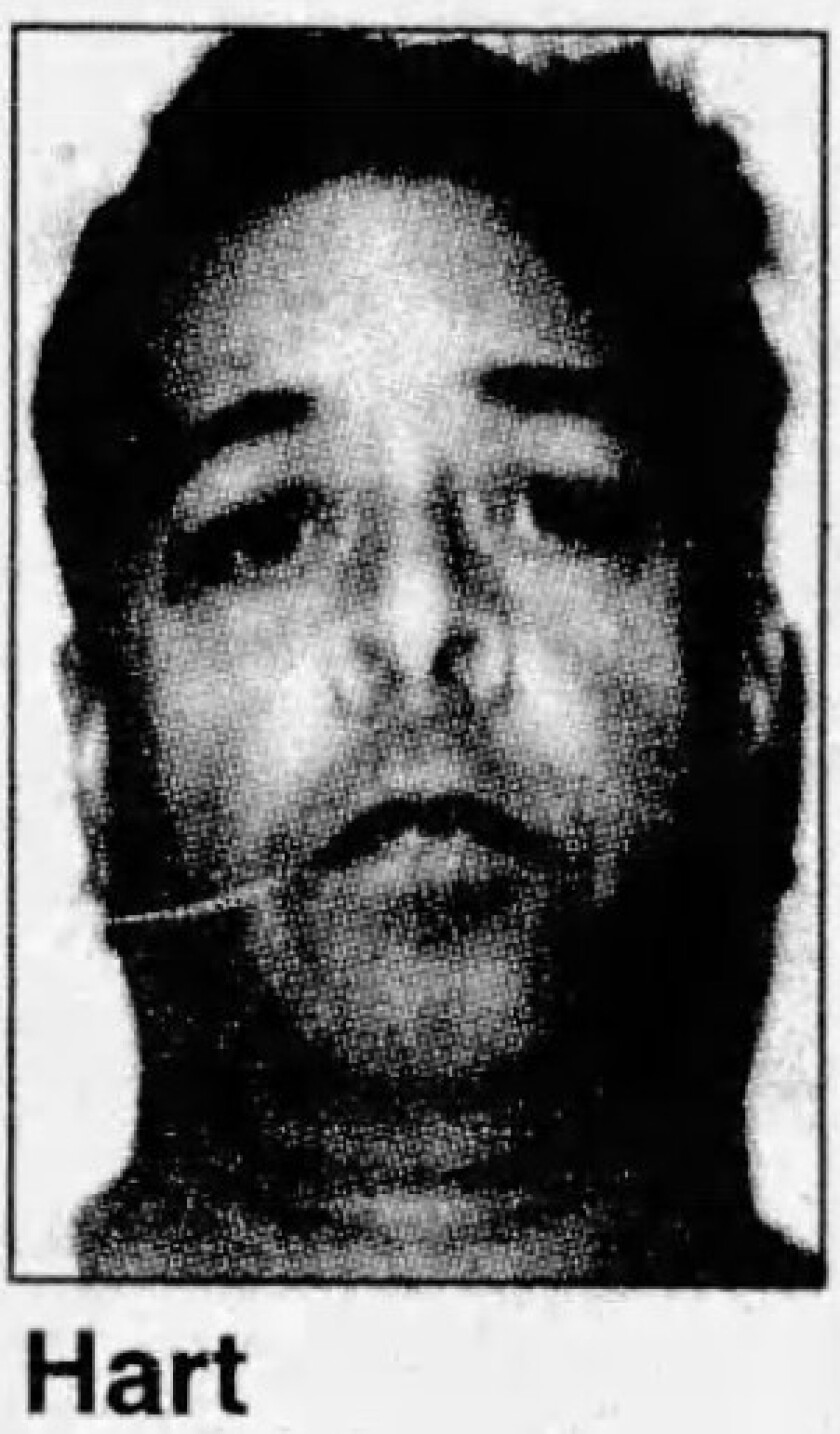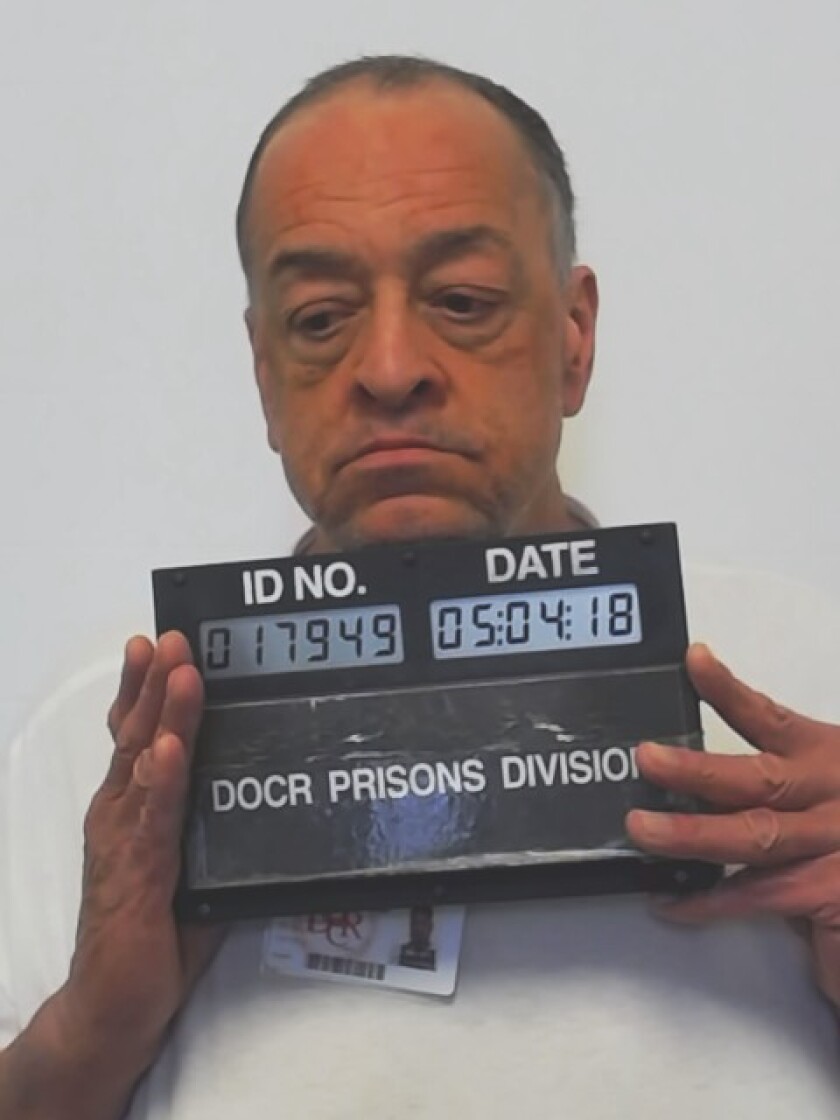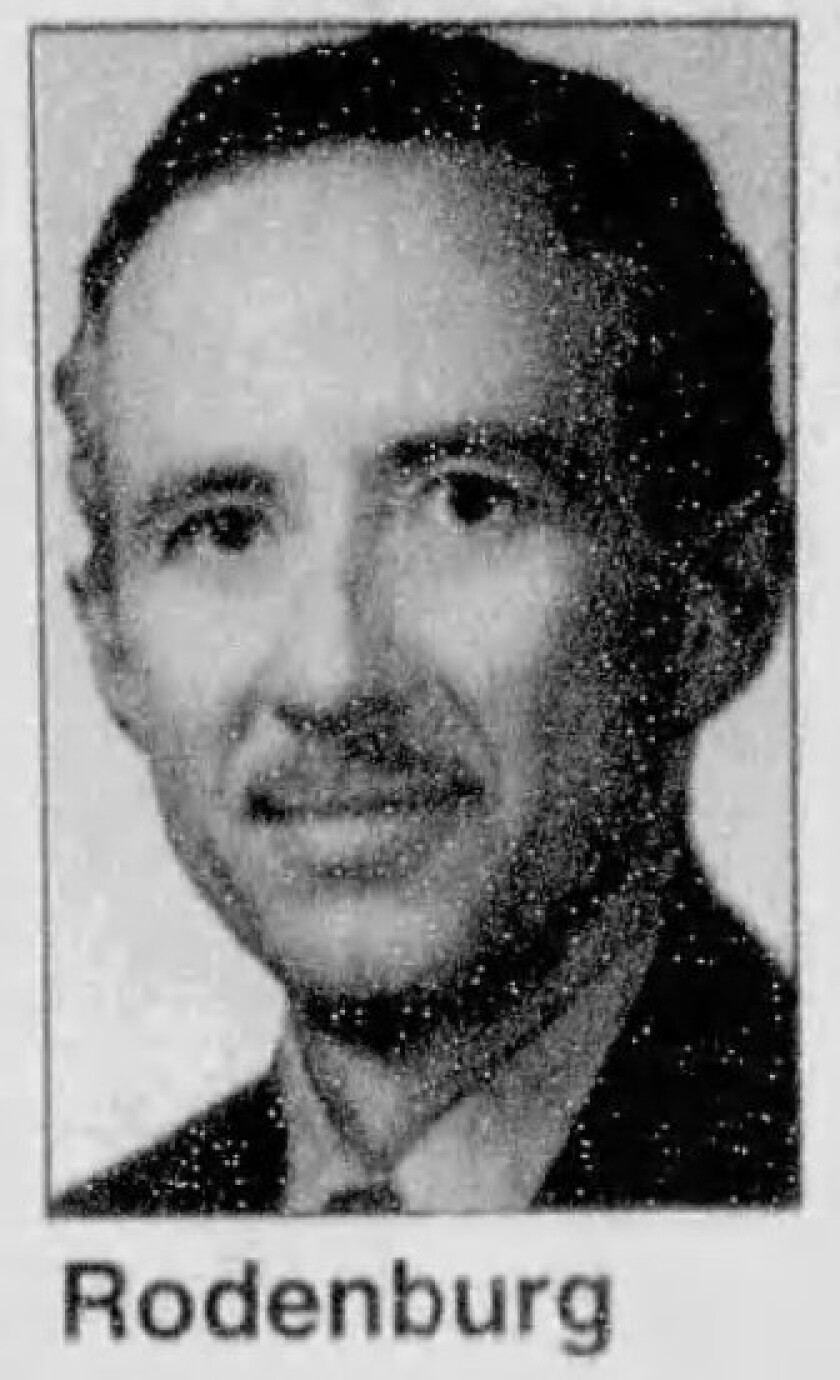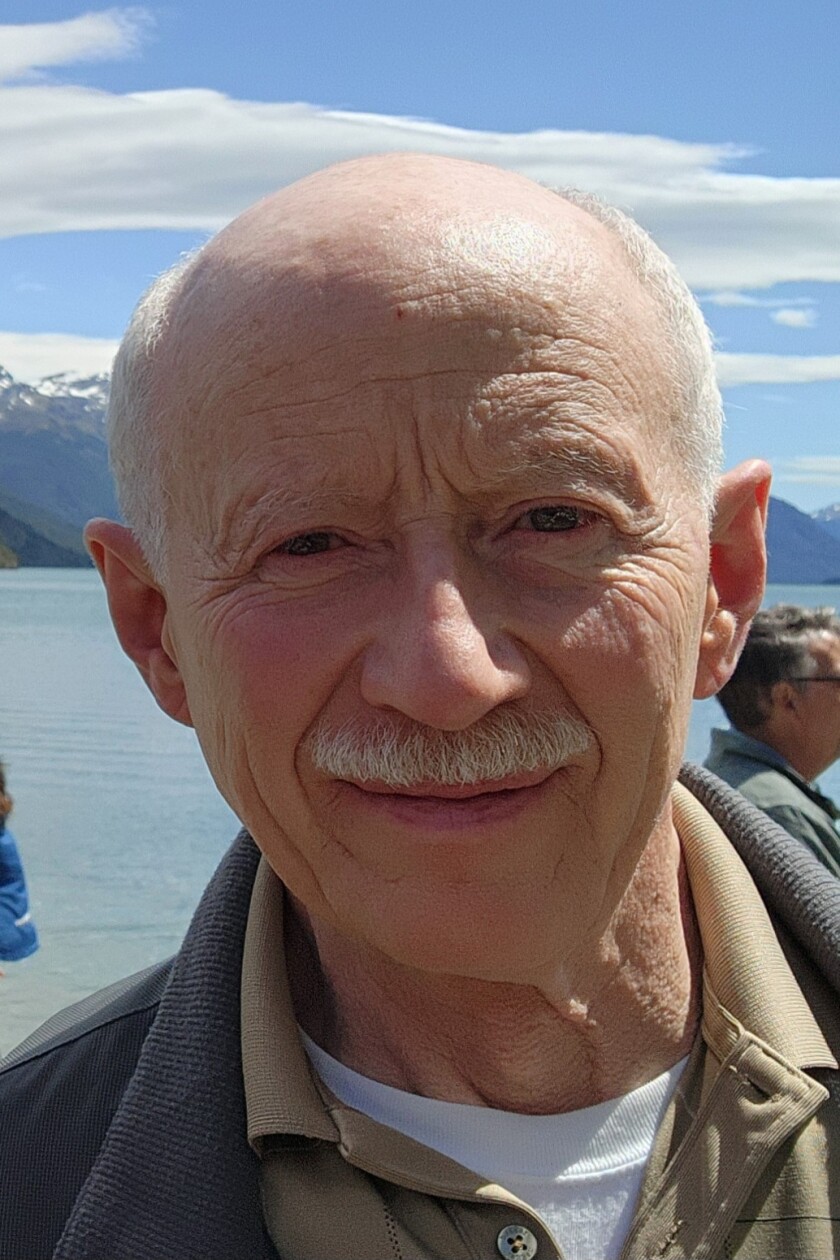FARGO, ND — Clifton “Cliff” Rodenburg was in the middle of his early-morning workout when a 6-foot, 5-inch, 300-pound man, a drifter known as “Creole,” walked into the Fargo-Moorhead YMCA’s weight room on March 26, 1996.
He carried a handbag. Inside were bullets, a defamation lawsuit filed by Rodenburg against “Creole,” and a 357-caliber handgun, according to news reports at the time.
The 45-year-old drifter, William Hart, knew where to find Rodenburg around 5:30 a.m., minutes after the downtown YMCA opened. Hart, who described himself as being half-black, and Rodenburg, a local attorney who was white, often worked out early. Rodenburg kept a predictable schedule starting with a run before lifting weights. Hart worked out at the same time, sometimes walking two hours to arrive.
From 1994 to 1996, Hart had threatened other YMCA members, but months prior to the shooting he focused on Rodenburg. He had thrown weights at him, and told other YMCA members that “Rodenburg should be killed,” according to a March 28, 1998 story published by The Forum.
Months of conflict ended when Hart pulled out the handgun from his handbag, walked up to Rodenburg, and pointed the weapon at him while he sat in an exercise machine. After all, Rodenburg was the man he believed who turned him in at an extradition hearing in Fargo, which sent him back to Iowa a few months earlier.
Hart called Rodenburg an derogatory term before pulling the trigger at point-blank range. The first bullet knocked Rodenburg off the seat, The Forum reported.
The second shot in his back came out the front. Another one of the five shots barely missed his heart.
“Five times … I still can’t figure that out. Am I in some type of alternative reality?” Rodenburg told The Forum in 2019, one of the rare instances he talked about the incident.
As Hart reloaded, Rodenburg ran 35 yards down a twisting hallway to the men’s general locker room before he collapsed. Hart ran into the main hall in the lower level, warned two people coming down the stairs to leave, then shot himself in the chest, according to a March 27, 1996 story published by The Forum.
ADVERTISEMENT
One witness at the scene, Frank Sepe, a critical care doctor, said Rodenburg was 20 feet away at the health club when he heard the shots.
“I saw at least two or three shots and there were three or four more afterwards … I figured I’d be next,” Sepe told The Forum in 1996. “This guy walked up to him with the gun and shot him, five or six feet, point blank.”

Hart’s violent past
Sepe witnessed Hart threaten Rodenburg before. Fargo Police reported that Hart had called Rodenburg racist in letters to local media, and Rodenburg sued Hart for defamation.
At the time of the shooting, Hart faced charges in at least nine states, including Iowa where he was charged with stealing $6,000.
In Montana, authorities charged Hart twice for threatening attorneys, once by telephone and once with a gun.
He also became an undercover drug agent for two Montana counties in 1982, but was later charged with misusing government money intended to buy drugs.
ADVERTISEMENT
Hart’s criminal record extended all the way to 1970 and to New Orleans, his birthplace, and read like the rap sheet for a mafia enforcer: theft, assault, concealed weapons, public intimidation and a murder-for-hire scheme.

And he got help. Before he shot Rodenburg, Hart was in jail in Iowa. While there, he lied to a friend, Mark Lathrop, saying Rodenburg owed him $50,000, and asked for a handgun and bail money of $3,250.
Lathrop borrowed the handgun from another man from Iowa, Patrick Parker, according to The Forum.
After he posted bail, Hart traveled back to Fargo a few weeks before the shooting, according to a lawsuit Rodenburg filed against Hart in 2002.
Hart, who also went by names such as William Judge Hart and Jo Jo Genna, recuperated from his self-inflicted injury, he was convicted at trial and sentenced as a special dangerous offender, a designation that allowed a judge to exceed the usual maximum 20-year sentence for attempted murder.
During the trial for shooting Rodenburg, Hart stated he returned to Fargo because Rodenburg's company owed him about $50,000. He argued that Rodenburg shot at him in the YMCA parking lot, and that they were involved in a shootout in the workout area. He was acting in self defense, according to a story published by The Forum on October 25, 1996.
Rodenburg "with three successive 'nos,'" denied doing any business with Hart and also denied the gun battle, The Forum reported.
ADVERTISEMENT

The lawsuits
Rodenburg, a native of Linton, North Dakota in Emmons County, was a partner at Johnson and Rodenburg law firm at 107 Roberts Street at the time. He lived with his wife and two young daughters in the Roundhill subdivision south of Fargo. During Hart's trial, he testified that he was shot in the chest, in the back, in the right shoulder, his left hip and his left leg.
About a half year after he was wounded, Rodenburg filed a personal injury lawsuit against the F-M YMCA, claiming that the gym did nothing to boost security even after he had warned them about Hart, according to news reports.
In March 1998, Rodenburg also filed a personal-injury lawsuit against Hart, who was serving a life sentence in the North Dakota State Penitentiary at the time. Rodenburg claimed he had incurred $34,000 in medical expenses, suffered physical and emotional pain and was disfigured. He also argued that his reputation has been harmed, leading to a loss of earning potential.
Lathrop, as well as other Iowa residents included in Rodenburg’s lawsuit, Patrick Parker and Amelia Oponski, were also included in Rodenburg's lawsuit.
“The Y aided Mr. Hart,” Rodenburg told justices in court, according to newspaper reports.

East Central District Judge Ralph Erickson said that the Iowa defendants did not have significant ties to be sued in North Dakota courts, and he dismissed them all from the case before trial in 1999, according to The Forum.
ADVERTISEMENT
In May 2000, after seven days of testimony, the YMCA was cleared of any responsibility by a Cass County District Court jury, who attributed all fault to Hart and awarded Rodenburg about $2.6 million in damages.
Rodenburg asked for a new trial.
He argued that crucial evidence — such as a police report he filed related to Hart’s threats before the shooting — was not properly weighed. Erickson disagreed, however, saying the jury’s verdict was final.
“It’s something I will never be able to collect,” Rodenburg said about the financial amount awarded by the jury.
Rodenburg argued his case all the way to the highest court in the state, and in 2001, the North Dakota Supreme Court upheld the East Central District Court verdict that the YMCA was not to blame for the shooting.
“In its decision on the fault of Hart and the Y, the justices said North Dakota’s legislators wrote laws that made it impossible for a jury to compare Hart’s intentional harm with the Y’s alleged negligent harm to Rodenburg,” The Forum reported on July 24, 2001.

ADVERTISEMENT
The attorney who survived
Rodenburg was a soft spoken attorney who never wanted the public’s eye. He set up what is now the Rodenburg Law Firm in the 1970s and specialized in creditor rights law.
He juggled other interests, including keeping up a healthy lifestyle and opening up a shoe store called “On the Run,” which was in the basement of his law firm, according to The Forum.
He died during his sleep on January 27, 2024, while on a National Geographic cruise from South America to Antarctica, ending in New Zealand. He was 74 years old, and he didn’t want a funeral. His wife, Donna, honored his wish and held a small gathering for family and friends in his honor.
Hart, now about 74 years old, remains in the North Dakota Penitentiary in Bismarck, where he was denied consideration of a parole board hearing on May 3, 2023. His next parole board consideration is set for 2028.












